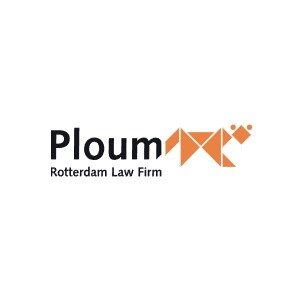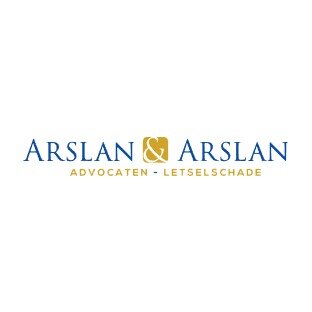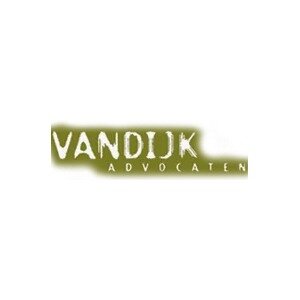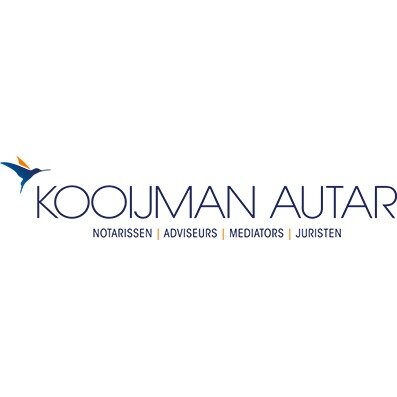Best Public-Private Partnerships (PPP) Lawyers in Rotterdam
Share your needs with us, get contacted by law firms.
Free. Takes 2 min.
List of the best lawyers in Rotterdam, Netherlands
About Public-Private Partnerships (PPP) Law in Rotterdam, Netherlands
Public-Private Partnerships (PPP) are collaborative projects between government agencies and private sector entities for the development, financing, operation, or maintenance of public assets or services. In Rotterdam, PPP is a popular framework used especially in infrastructure, urban regeneration, public transport, and sustainability projects. These partnerships are designed to benefit from private sector efficiency, investment, and expertise while advancing public goals. Dutch and European Union laws, as well as local Rotterdam policies, shape how PPPs are structured, governed, and implemented.
Why You May Need a Lawyer
Entering into a Public-Private Partnership involves significant legal, financial, and operational commitments. Legal advice is essential for several reasons:
- Preparing and Negotiating Contracts: PPP agreements are complex and must reflect the interests of both the public and private parties.
- Understanding Regulatory Compliance: PPPs must comply with Dutch laws, EU directives, and local governmental requirements.
- Managing Risks: Identifying and allocating risks appropriately (such as financial, operational, and reputational risks) is crucial.
- Dispute Resolution: Disagreements can arise over performance, payments, or changes to the project.
- Financing and Procurement: Legal advice ensures compliance during tendering and financial structuring.
- Project Lifecycle Management: Legal support may be needed from planning and construction to operation and handover.
Local Laws Overview
Rotterdam follows the national PPP framework of the Netherlands, which aligns with European Union regulations on procurement, competition, and state aid. Key legal aspects include:
- Procurement Law: All publicly funded PPP projects must observe the Dutch Public Procurement Act 2012 and relevant EU directives to ensure transparency and fair competition.
- Contractual Structures: Common forms are Design-Build-Finance-Maintain (DBFM), concessions, and joint ventures. The terms must be detailed in contracts that address risk allocation, duration, performance indicators, and dispute mechanisms.
- Municipality Role: The City of Rotterdam often acts as the contracting public authority, initiating, supervising, and sometimes co-funding PPPs.
- Environmental and Planning Regulations: Projects must comply with zoning, construction, and environmental laws at the national and local level.
- State Aid Controls: PPP structures must follow EU rules preventing unfair state aid to private companies.
Frequently Asked Questions
What is a Public-Private Partnership (PPP)?
A PPP is a long-term agreement between a public authority and a private party to provide a public asset or service, where the private party assumes significant risks and responsibilities.
Are PPPs common in Rotterdam?
Yes, Rotterdam actively promotes PPPs, especially in areas like infrastructure, housing, energy transition, and urban development.
Who can initiate a PPP project in Rotterdam?
Typically, public authorities initiate PPPs, but private entities can propose unsolicited projects. The city government reviews and approves all PPP projects.
What types of projects use PPP structures?
PPP is used for public transport improvements, road construction, housing developments, energy facilities, schools, and recreational facilities.
Which laws must PPPs comply with?
PPPs must follow Dutch national law, EU regulations, and local Rotterdam ordinances on procurement, construction, and public sector accountability.
What risks do private companies assume in PPPs?
Private partners typically take on financing, construction, operational, and sometimes demand risks, depending on the project type.
How is a PPP contract awarded?
Most contracts are awarded through a competitive public procurement process, evaluating price, quality, risk sharing, and sustainability.
How are disputes in PPP projects resolved?
Contracts specify dispute resolution formats, often starting with negotiation or mediation, and if unresolved, may proceed to arbitration or court.
Can a PPP contract be modified after it is signed?
Yes, but changes are subject to strict rules to prevent favoritism or unfair competition. Substantial modifications might require a new procurement process.
Why should I consult a lawyer before entering a PPP?
A lawyer ensures your interests are protected, the contract is fair, and the project complies with all legal requirements, reducing risks of future disputes or penalties.
Additional Resources
If you are seeking further information or legal assistance regarding PPPs in Rotterdam, consider contacting the following:
- City of Rotterdam - Economic Development Department: Provides information about ongoing and future PPP projects and procurement procedures.
- Rijkswaterstaat (Dutch Ministry of Infrastructure and Water Management): Offers detailed guidelines and frameworks for PPPs in national infrastructure.
- Netherlands Enterprise Agency (RVO): Supports businesses and public authorities in PPP initiatives, including financial programs.
- European PPP Expertise Centre (EPEC): Offers best practice insights and technical resources for PPPs across Europe.
- Local Law Firms: Specialized law firms in Rotterdam offer consultations in PPP law, procurement, and contracts.
Next Steps
If you are considering involvement in a PPP project in Rotterdam or require legal advice about an existing PPP, you should:
- Gather all relevant documentation about the project or proposal.
- Identify the questions or areas where you need legal clarity, such as contracts, compliance, or ongoing disputes.
- Contact a lawyer or law firm in Rotterdam with expertise in PPP law. You may also consult one of the mentioned governmental bodies for guidance.
- Prepare for your consultation by outlining your objectives, expected outcomes, and any deadlines you must meet.
- Follow the legal advice provided and ensure ongoing compliance with Dutch, EU, and local Rotterdam regulations throughout the PPP lifecycle.
Seeking professional legal support early in the PPP process can prevent costly mistakes and ensure the success and sustainability of your project.
Lawzana helps you find the best lawyers and law firms in Rotterdam through a curated and pre-screened list of qualified legal professionals. Our platform offers rankings and detailed profiles of attorneys and law firms, allowing you to compare based on practice areas, including Public-Private Partnerships (PPP), experience, and client feedback.
Each profile includes a description of the firm's areas of practice, client reviews, team members and partners, year of establishment, spoken languages, office locations, contact information, social media presence, and any published articles or resources. Most firms on our platform speak English and are experienced in both local and international legal matters.
Get a quote from top-rated law firms in Rotterdam, Netherlands — quickly, securely, and without unnecessary hassle.
Disclaimer:
The information provided on this page is for general informational purposes only and does not constitute legal advice. While we strive to ensure the accuracy and relevance of the content, legal information may change over time, and interpretations of the law can vary. You should always consult with a qualified legal professional for advice specific to your situation.
We disclaim all liability for actions taken or not taken based on the content of this page. If you believe any information is incorrect or outdated, please contact us, and we will review and update it where appropriate.












